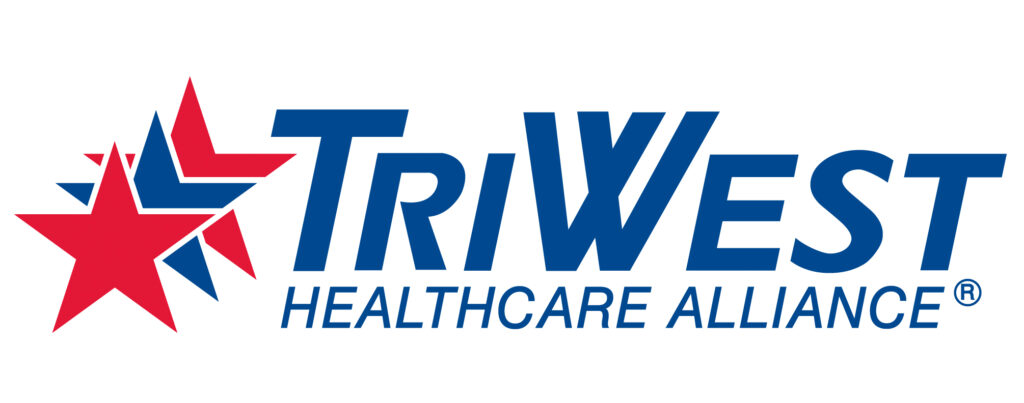Mental health care is health care.
Today, insurance providers are required by law to provide the same coverage for mental health care as they do for physical health care, however, in reality, this isn’t always true.
Understanding and navigating mental health care insurance coverage can be extremely confusing, overwhelming, and expensive. In this article, we’ll do our best to provide a comprehensive guide to mental health insurance so that you can make informed decisions for yourself, your child, or a loved one.
What is Health Insurance?
Health insurance is a form of financial protection that helps individuals cover the cost of expensive medical services such as doctor’s appointments, hospital stays, prescription drugs, and more.
The basic philosophy of insurance is for a community of people to pool small amounts of money together so that if one individual in the group has an expensive emergency, the group has pooled enough money to pay for it.
It’s important to have health insurance because virtually everyone is guaranteed to have a health emergency at some point in their life, and having health insurance coverage ensures that you will be able to afford it when it happens. Additionally, having health insurance means you can have regular, affordable checkup appointments, discounted prescription drugs, and overall peace of mind.
Insurance is important and it has been practiced for centuries, but today, our health insurance system is overly complicated and undeniably expensive.
Understanding Insurance Terms
When understanding health insurance for mental health and addiction issues there are a few key terms you need to know.
Premiums
Insurance premiums are the payments that must be made by an individual or organization to an insurance company in order for coverage to remain active. These payments may be charged monthly, quarterly, semi-annually, or annually depending on the type of policy and the preferences of the insured.
Premiums are usually calculated based on factors such as type of policy, age, risk of illness or accident, and lifestyle. They are also used to compensate an insurance company for providing coverage and services associated with a particular policy.
Deductible
An insurance deductible is the amount of money you must pay out of pocket before your health insurance begins to pay for anything.
The amount of the deductible may vary between different health insurance plans. If you are willing and able to pay more out of pocket up front, you may be able to save money in the long run on premiums.
For instance, if your therapist charges $250 per therapy session, and your health insurance plan has a $1000 deductible, that means you would be responsible for paying all $250 for the first four sessions you attend. After the first four sessions, you will have spent $1000 and “hit your deductible” meaning your insurance will kick in for the fifth therapy session and any other medical services you need for the rest of the year.
However, just because you hit your deductible, doesn’t mean that your insurance company will begin to pay for everything. After you hit your deductible you are subject to coinsurance.
Coinsurance
Coinsurance, otherwise known as a copayment, copay, or percentage of pay, is the percentage of the medical bill that the insurance company requires a customer to pay out of pocket.
For example, if an individual has a plan with “80/20” coinsurance, then the insurer will cover 80% of medical costs after the deductible is met while the customer will be responsible for covering 20%. The coinsurance percentage will typically be between 10% and 30% of the medical bill. This means if your medical bills are $250, and your coinsurance is 10%, you will owe $25 and your insurance company will pay the remaining $225.
Out-of-Pocket Maximum
An out-of-pocket maximum, or a “stop loss”, is the most that a person will have to pay for their health insurance in a single year. The out-of-pocket maximum ensures that even if your medical bills are infinitely higher than you expected, you will only ever have to pay a maximum amount of the out-of-pocket maximum.
Keep in mind, there is only one out-of-pocket maximum. Separate services such as checkups, ER visits, surgeries, therapy sessions, etc., all contribute to the same out-of-pocket maximum.
Where to Get Health Insurance?
As of 2020, Californians are required by law to have health insurance, and many other states have similar policies. Health insurance is a critical component of planning for the future and keeping yourself and your loved ones healthy.
There are a few different places you can get health insurance. Most health insurance plans are provided by employers. Others are purchased directly from a health insurance company. Through the Affordable Care Act, you can purchase health insurance through the government. Additionally, some states offer their own health exchange programs where you can purchase affordable coverage with subsidies based on how much money you make and the size of your family.
Keep in mind, insurance policies can only be purchased during an open enrollment period, or if you experienced a life “qualifying life event” that would enable you to purchase a new policy outside of open enrollment. Examples of qualifying life events include:
- Change in marital status
- Birth of a child
- Change in employment status
- Loss of other health coverage
- Relocation to a new geographic area
- Turning 26 years old
- Death of a dependant
- Change in student status
- Aging into medicare eligibility
Private Health Insurance
Individuals and families can purchase private health insurance from an insurance carrier, either directly or through a broker. The coverage, premiums, and co-pays vary depending on the plan chosen. Additionally, most states have a Health Insurance Marketplace where consumers can compare and purchase plans from private insurers.
Employer Health Plans
Employers often offer group health plans that provide benefits to employees and their family members. Depending on the employer size and other factors, these plans may include preventative care, doctor visits, hospitalizations, prescription drugs, vision, and dental services, mental health services, occupational therapy, and more.
ACA/Medicare
The Affordable Care Act (ACA) is a federal law that provides access to health insurance for millions of Americans who would otherwise not be able to afford it. Lower-income individuals and families may be eligible for federal programs such as Medicaid or the Children’s Health Insurance Program (CHIP).
Making the Most of Your Mental Health Insurance Coverage
In-Network Providers vs. Out-of-Network Providers
When selecting a mental health care provider, it is important to consider whether they are in your insurance network or out of network. In-network providers have contracted rates with the insurer and typically cost less than out-of-network providers. However, if you need specialized care that is not available from an in-network provider, then you may want to opt for an out-of-network provider.
Utilizing Other Resources Available Through Your Plan
Many insurers offer additional resources such as online tools or phone apps that can help you manage your healthcare costs more effectively. These tools can provide information on covered services and estimated costs based on specific plans so you know what to expect when seeking treatment for mental health issues. Additionally, many insurers offer discounts on certain medications used in treating mental illness which can help reduce overall expenses associated with treatment.
Keeping Track of Claims and Reimbursements:
Once you receive care through your insurance plan it’s important to keep track of all claims submitted as well as reimbursements received from the insurer. This will ensure accurate records are kept should there ever be any discrepancies between billed amounts versus payments made by the insurer or if there are questions about coverage down the line due to changes in policy or other factors outside one’s control.
Lastly, staying up to date on changes in coverage offered by your insurance company is key when utilizing their services for mental health treatment needs since policies often change over time without prior notice given directly to members. Keeping abreast of these changes ensures that patients remain informed about their rights under their plan while also avoiding unexpected surprises related to denied claims due lack of knowledge regarding policy updates.
Understanding the differences between types of Health Insurance Policies
When selecting health insurance, it’s important to understand the differences between common types of plans like HMOs (Health Maintenance Organizations), PPOs (Preferred Provider Organizations), EPO’s (Exclusive Provider Organizations), POS (Point of Service), and HDHPs (High Deductible Health Plans). Here’s a look at how each type of plan works:
HMOs
With an HMO, you select a primary care physician who will oversee your care and refer you to specialists when necessary. All of your medical services must go through this doctor to be covered by the policy. You’re also generally limited to getting care from doctors and hospitals within the plan’s network. HMO plans tend to have lower premiums and deductibles than other plans, but there may be limits on what type of care is covered. HMO plans do not have out-of-network benefits.
PPOs
PPO plans allow more flexibility when it comes to where you can get your care. You don’t need a referral for specialist visits and you can see any doctor in or out of the plan’s network. While there are usually higher copayments or coinsurance rates when using providers that aren’t part of the network, this option is often more cost-effective if you know you will be receiving specialized care from an out-of-network provider.
EPO’s
An EPO is a type of health insurance plan that provides coverage for medical services through a network of providers. The EPO network consists of both primary care physicians and specialists but does not usually include out-of-network services. This means patients enrolled in an EPO plan won’t be able to receive care from doctors or hospitals outside the EPO plan’s designated network. Generally, EPOs offer low premiums and deductibles as well as comprehensive coverage that includes preventive care visits and prescription drug benefits. However, since out-of-network care isn’t covered, it’s important to make sure any providers you need are within the plan’s network before signing up.
POS
A POS plan is a type of managed care policy that offers patients the flexibility to use providers outside the network, however in-network services are usually more beneficial cost-wise. The plan generally requires members to choose a primary care physician that will coordinate their healthcare needs and make referrals when necessary. Although out-of-network doctors can be seen, members will pay higher fees for those services and may need approval from their primary care physician before they receive treatment. Most plans also include coverage for prescription drugs, preventive care visits, and emergency services.
HDHPs
HDHPs are high-deductible health insurance plans with lower monthly premiums that require you to pay more upfront for medical expenses before coverage kicks in. They often come with tax-advantaged savings accounts such as Health Savings Accounts or Flexible Spending Accounts that can help cover these costs until your deductible is reached. HDHPs can also offer lower out-of-pocket costs over time if you don’t anticipate needing many medical services throughout the year.
Before signing up for any insurance plan, it’s important to compare different options carefully based on factors such as cost, coverage, provider network availability, and type of care available in each plan.
Is Mental Health and Addiction Care Covered By Health Insurance?
Most major health insurers now provide substance abuse and mental health benefits as part of their standard coverage packages; however, this varies depending on the specific policy you have chosen so it is important to check with your behavioral health providers first before seeking treatment for any mental health condition such as depression or anxiety disorders. Generally speaking, most plans will cover at least some portion of appointments with licensed professionals such as psychiatrists, psychologists, social workers, counselors, etc., along with medications prescribed for treating certain conditions related to mental illness and/or addiction.
How To Know How Much My Mental Health Insurance Covers?
To find out what exactly is covered under your particular plan, contact either the member services number on the back of your insurance card (if applicable) or speak directly with someone from Human Resources if your health plan was obtained through your work. They should be able to provide information about deductibles, copays, and coinsurance limits, which will help determine how much money you’ll need upfront when paying for treatments related to mental health issues. Additionally, many providers also offer online portals where members can log in and view details about their plan including what services are covered, how much they’ll cost, and other specific details of their insurance plan.
In recent years, there has been a shift towards providing more comprehensive coverage for mental health and addiction due largely in part to changes made within the Affordable Care Act which requires any individual market health plan sold after 2014 must include essential health benefits including mental health and substance use disorder treatment. Behavioral counseling, psychiatric care, therapy sessions, detoxification, inpatient residential rehab, and other mental health and substance use disorder services are all covered under most health plans. This means that regardless of whether insured through work, private marketplace, or public program, most people should now have access to quality mental health treatment services without having to worry too much about the costs associated with receiving it.
Insurance plans vary in terms of the types of mental health treatment they cover. Generally, most insurance plans will cover some form of psychotherapy and/or medication management services. This may include individual therapy, group therapy, family therapy, couples counseling, or other forms of psychotherapy. Additionally, many insurance plans also cover psychiatric evaluations and medication management services such as prescribing medications for mental health conditions.
Health Insurance Companies Outsourcing Addiction and Mental Health Care
It has become increasingly common for health insurance companies to outsource mental health care, or “behavioral health benefits”, to third-party providers. This process can make mental health coverage even more difficult to understand than it already is.
Carveouts
Many insurance companies use secondary insurance companies to provide different mental or behavioral health benefits to different patients. This is called an insurance “carveout”.
For example, if you have health insurance with Anthem and you need to use your medical benefits, such as when you break your leg, you will file a claim with Anthem. But, if, under the same policy, you need to see a psychiatrist or attend a therapy session, those claims will be “carved out” to a completely separate company. Mental health coverage like psychiatry appointments or therapy sessions fall under behavioral health benefits which are often outsourced to an entirely separate health insurance company.
This practice can have both benefits and drawbacks, as well as serious implications for those seeking mental health care.
Why Do Insurance Companies Outsource Mental Health Care?
The main reason for outsourcing mental health care services is cost-saving. Behavioral health services and mental health coverage is relatively new, and longstanding health insurance companies may not be ready to invest in fully developed mental health insurance plans. Instead, to save money, they utilize third-party organizations that only provide mental health insurance coverage.
What Are Some Potential Drawbacks?
One of the biggest potential drawbacks of outsourcing mental health care is that it can limit people’s access to quality care and resources. Many mental health care professionals and their offices may not be in network with these more obscure health insurance companies. This may lead to lower-quality service for customers who are unable to access more behavioral health services when they need them for themselves or their family members.
Prior to assuming that you’re in-network with a certain program or provider, make sure that your behavioral health benefits fall under the same company as your medical benefits, and that they are not “carved out” to another company.
Benefits Of Having Mental Health Coverage Through Insurance:
Having mental health coverage through your insurance plan can make it easier to access quality mental health care at an affordable cost. Health insurance coverage provides peace of mind, knowing that your mental health insurance will kick in should any unexpected costs arise due to your mental health care needs. Additionally, having coverage through your insurer means that you are more likely to receive consistent care from providers who accept your plan’s payment terms, which is important when managing chronic mental health conditions like depression or anxiety disorders over time.
While having coverage through an insurer does reduce the overall cost associated with receiving mental healthcare treatments, there are still out-of-pocket expenses involved with mental health treatment. Depending on the type of plan you have chosen, expenses such as deductibles and copays can be significant. In addition, if you choose to seek mental health treatment from behavioral health providers who are not in-network with your insurance company, then your costs could be significantly higher than what they would be under an in-network provider. For this reason, it’s important to do research about which providers accept your particular plan before scheduling appointments and signing contracts.
The best way to find a provider who accepts your specific insurance plan is by calling their office directly and asking them if they take that particular type of policy. Alternatively, many insurers offer online directories where patients can search for doctors within their network based on specialty, location, etc. Finally, don’t forget to ask friends, neighbors, or colleagues if they know anyone who takes the same type of policy, since word-of-mouth referrals can often lead you straight toward someone qualified for treating whatever mental health issues you may need help with.
Navigating the Process of Getting Approved for Mental Health Treatment Through Your Insurer
Navigating the process of getting approved for mental health treatment through your insurer can be a daunting task. It is important to understand preauthorization requirements, documentation needed, different levels of care and their cost implications, working with providers to maximize benefits, and knowing when you can appeal a denial or rejection from insurers. Note that most providers take care of this process internally.
Preauthorization Requirements for Mental Health Services
Before receiving any mental health services covered by insurance, most plans require that they are preauthorized. This means that the plan must review information about the proposed service in order to approve it before payment will be made. The exact criteria used by each plan may vary but generally includes medical necessity and appropriateness of the requested service.
Documentation Needed for Preauthorization
When requesting preauthorization for mental health services, certain documents may need to be provided including clinical notes from previous visits or treatments as well as diagnostic codes and other relevant information such as laboratory results or imaging studies if applicable. It is also important to provide detailed descriptions of why the service is being requested and how it will benefit the patient’s overall care plan.
Understanding Different Levels of Care & Their Cost Implications
Depending on an individual’s needs, various levels of care are available, ranging from outpatient therapy sessions to residential treatment programs at specialized facilities such as detox centers or dual diagnosis units. Each level has its own associated costs which should be discussed with both your provider and insurer prior to beginning any treatment program so that you have an understanding of what out-of-pocket expenses you may incur during this process.
Working With Your Provider To Maximize Benefits
Once you are approved for coverage, it is important to work closely with your provider in order to ensure that all necessary steps are taken so that you can receive maximum benefits from your mental health insurance policy while minimizing out-of-pocket costs. This could include discussing alternative treatment options that might qualify under existing coverage guidelines, or negotiating lower fees directly with providers if that’s allowed in your state or region.
If after submitting all required documentation an insurer denies coverage then it is possible to file an appeal against this decision depending on state laws governing appeals processes related specifically to healthcare policies. In some cases, additional evidence may need to be submitted along with written explanations detailing why coverage should not have been denied based on specific criteria outlined within policy terms and conditions.
Summary – Get High-Quality Mental Health Care at Clear Behavioral Health
Having insurance for mental health is an important part of taking care of your overall well-being. It can be a complex process to understand the terms and coverage that you have, but it’s worth the effort to make sure you get the best possible care for yourself or your loved one. Taking advantage of all available resources, such as speaking with a knowledgeable representative from your insurer about what is covered under insurance for mental health, will help ensure that you are able to access quality treatment when needed.
The need for accessible and affordable mental health services is greater than ever. Clear Behavioral Health is committed to helping families in the LA area get the help they need when they need it most. Clear is in-network with most major insurance providers for all levels of care. We offer a wide range of treatment options tailored to individual needs such as detoxification including drug detox and alcohol detox, dual diagnosis support, individual therapy, group therapy, and more. Join us in our mission to make quality mental health care available and affordable for everyone who needs it. Call us today to learn more.
Clear Behavioral Health is In-Network
FAQs about Mental Health Insurance
Yes, insurance coverage for mental health services is available in the United States. Most major medical plans cover some form of mental health care, including diagnosis and treatment. The exact coverage depends on the plan and may include individual therapy, group therapy, case management, medication management, and more. Some plans also provide additional benefits such as access to 24-hour crisis lines or online resources. It’s important to check with your provider to determine what type of mental health services are covered under your specific plan.
Mental illness is generally covered by life insurance policies, but the extent of coverage depends on the specific policy. Most life insurance companies will cover mental health conditions, such as depression or anxiety if they are diagnosed and treated properly. However, some insurers may exclude certain mental illnesses from their coverage, or limit the amount of money paid out for these conditions. It’s important to check with your insurer to understand what is covered in your policy.
Yes, you can get insurance if you have depression. Many health insurance plans cover mental health services such as individual and group therapy, medication management, case management, and other treatments for depression. It is important to check with your specific plan to see what coverage is available. Additionally, some states offer additional protections that require insurers to provide coverage for mental health services regardless of the type of plan purchased.
Yes, Medicare provides coverage for mental health treatment services. Medicare covers both inpatient and outpatient mental health treatment, including counseling and psychotherapy. In addition, prescription drugs used to treat mental health conditions are covered under Medicare Part D. To see what providers accept Medicare mental health insurance, contact Medicare directly.














